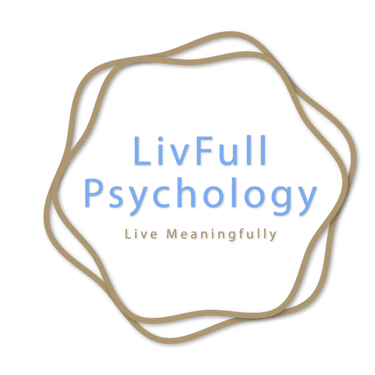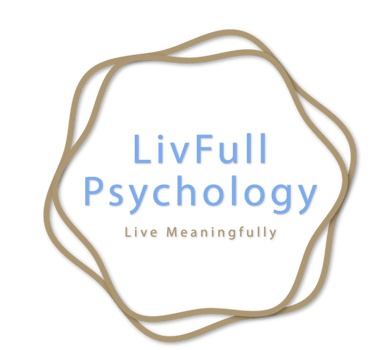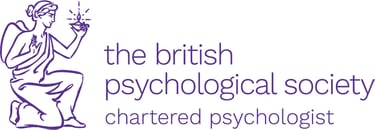Appraisals in Unwanted Intrusive Thoughts and Obsessions
Illustrative Faulty Interpretations and Alternative, More Adaptive Explanations for Each of the Primary Obsessive–Compulsive Appraisals
OCD
Types of Appraisals Involved in the Persistence of Unwanted Intrusive Thoughts and Obsessions
Types of Appraisals
Explanation of the appraisal
Adaptive alternative interpretation
Overestimated threat
To overestimate the severity and/or likelihood that a highly negative, even catastrophic, consequence of the obsession could occur. As a result, the obsession represents a serious threat to personal well- being.
Examples of the faulty appraisal/interpretaion
Situations are safe unless there is external, real-life evidence of actual threat or danger. Having thoughts and feelings about the possibility of imagined negative consequences does not mean that real-life negative outcomes are more certain.
Anything that elicits the obsession will increase the possibility of highly undesirable consequences.
“If I shake a stranger’s hand, then I will contract a fatal disease.”
“If I left the car unlocked, then someone will steal it.
“If I feel even a little physical discomfort, this means I must be getting seriously sick.”
Thought–action fusion (TAF)
To assume that thinking about a negative event increases the likelihood that the negative event will happen, or that “bad” thoughts are morally equal to “bad” deeds.
Likelihood TAF. The occurrence of the obsession increases the probability that a negative event will happen.
Moral TAF. Having “bad” thoughts is as immoral as acting on these thoughts.
“If I think something evil, it is more likely to happen.”
“If I think (or imagine) that a person is having an accident, he or she is more likely to have one.”
“Thinking that I might have sexually touched a child is almost as bad as doing it.”
“If I think I’ve made a mistake, it is more likely that I really have made a mistake.”
Likelihood TAF. Thoughts cannot have a direct causal influence on events in the real world. Moral TAF. Moral character is based on what we do and not on what we think.
Inflated responsibility
To hold oneself responsible to prevent a perceived negative outcome that could have a real or imagined consequence for the self or for others. The person believes that he or she has influence over the negative outcome and therefore is responsible for that outcome.
Because one thinks about the possibility of the occurrence of harm, that person is primarily responsible to prevent the possible harm occurring to self or others.
“If I see a piece of broken glass on the road, I must pick it up. If I don’t, it would be my fault if a car ran over the glass and had an accident.”
“If I do something wrong, God will punish me by making other people sick.”
“I must make sure that I don’t contaminate other people.”
All real-life negative events involve multiple factors that cause them to happen. As a result, responsibility is distributed across many contributing factors, with a person’s own contribution to the event often playing a very minor, practically insignificant role. Because an individual’s influence over a possible negative event is so limited, his or her responsibility to prevent that event is minimal, if not practically nonexistent.
Overimportance of thought
To assume that a highly persistent unwanted thought must have some significance for the self because it occurs so frequently against one’s will.
Persistent obsessions must be very important, because they signify some undesirable inner motive or potential.
“I must be very susceptible to disease and illness because I am preoccupied with avoiding contamination.”
“If I have violent and aggressive thoughts against people, maybe deep down I want to harm them.”
“Because I so frequently have blasphemous thoughts against God, I must be an evil person or demon possessed.”
“If I continually wonder if I’ve done things right and correct, maybe it is because I have to be extra concerned about carelessness.”
Because obsessions involve themes that are completely contrary or alien to a person’s cherished values and inclinations, a person tends to give them undue attention. Just dwelling on a thought can raise its perceived importance.
Control of thoughts
To assume that it is possible and highly desirable to have near perfect control over unwanted thoughts in order to avoid negative consequences.
Failing to exert strong and effective control over the obsession will lead to highly undesirable negative consequences.
“If I don’t get better control over these obsessions, I will become overwhelmed with anxiety.”
“If I do a better job controlling my obsessions, this means I am less likely to act on them.”
“If I don’t control these thoughts, they will eventually drive me ‘crazy’.”
Great effort at controlling an unwanted thought will cause an increase in its frequency, salience and associated distress. By relinquishing effort to exert mental control over the obsession, ultimately less attention is devoted to the thought and the personal importance of the thought is downgraded.
Intolerance of uncertainty
To assume that it is critical to achieve almost absolute or perfect certainty in thought or action in order to maximize predictability and control. Ambiguity, newness, change, or not knowing should be avoided because they can increase anxiety and stress.
One must strive to achieve absolute certainty in thought and/or action in order to reduce doubt, ambiguity, and the possibility of negative outcomes, which, in turn, elicit anxiety or distress.
“If I feel any doubt about a decision, I must keep going over and over it until I am convinced beyond doubt that the decision was the right one.”
“I must have proof, a guarantee that I am a peaceful person and not capable of rape.”
“I need to be certain that I did not make a mistake on that form.”
“It is critical that there is no possibility of contamination in my house (or apartment).”
Uncertainty is an unavoidable aspect of human experience and cannot be completely eliminated. It is the striving for certainty (or the complete eradication of doubt) that elevates anxiety and perceived dangerousness rather than the presence of some degree of uncertainty.
Perfectionism
To assume that it is possible and highly desirable to strive for the one best response to each problem or situation. Even minor mistakes and inaccuracies must be avoided, because they can lead to serious consequences.
One must strive to achieve a perfect response or solution to every problem or situation in order to avoid the serious consequences that occur because of minor mistakes and inaccuracies.
“It is important that I find the ‘perfect’ gift for every special occasion.”
“I can answer ‘yes’ to a questionnaire item only if it describes me perfectly in every situation.” “
I should never have a bad or sinful thought against God or other people.”
“I must ensure that there is not even a speck of dirt in my room that could contaminate me.”
Uncertainty is an unavoidable aspect of human experience and cannot be completely eliminated. It is the striving for certainty (or the complete eradication of doubt) that elevates anxiety and perceived dangerousness rather than the presence of some degree of uncertainty.
Retrieved from Cognitive Behavioral Therapy for OCD by David Clark, 2004








